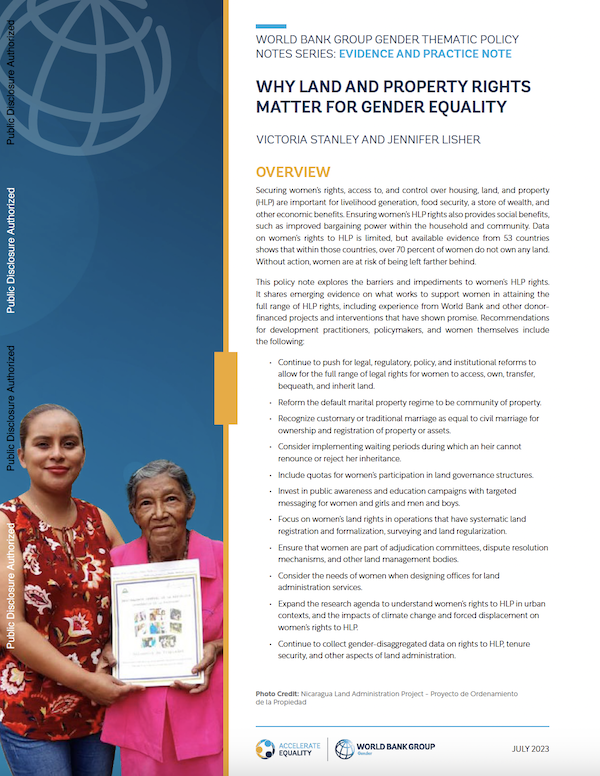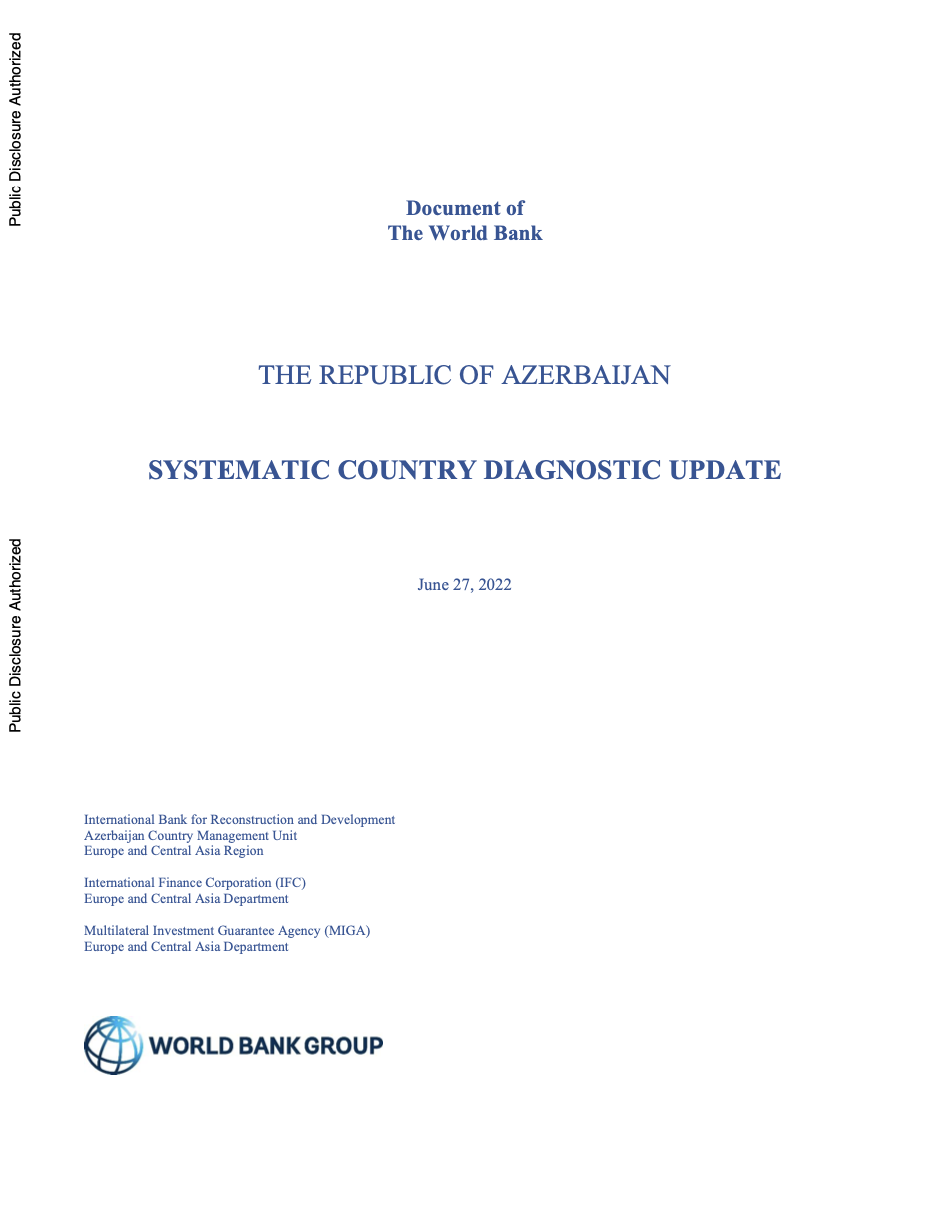The World Bank is a vital source of financial and technical assistance to developing countries around the world. We are not a bank in the ordinary sense but a unique partnership to reduce poverty and support development. The World Bank Group has two ambitious goals: End extreme poverty within a generation and boost shared prosperity.
- To end extreme poverty, the Bank's goal is to decrease the percentage of people living on less than $1.25 a day to no more than 3% by 2030.
- To promote shared prosperity, the goal is to promote income growth of the bottom 40% of the population in each country.
The World Bank Group comprises five institutions managed by their member countries.
The World Bank Group and Land: Working to protect the rights of existing land users and to help secure benefits for smallholder farmers
The World Bank (IBRD and IDA) interacts primarily with governments to increase agricultural productivity, strengthen land tenure policies and improve land governance. More than 90% of the World Bank’s agriculture portfolio focuses on the productivity and access to markets by small holder farmers. Ten percent of our projects focus on the governance of land tenure.
Similarly, investments by the International Finance Corporation (IFC), the World Bank Group’s private sector arm, including those in larger scale enterprises, overwhelmingly support smallholder farmers through improved access to finance, inputs and markets, and as direct suppliers. IFC invests in environmentally and socially sustainable private enterprises in all parts of the value chain (inputs such as irrigation and fertilizers, primary production, processing, transport and storage, traders, and risk management facilities including weather/crop insurance, warehouse financing, etc
For more information, visit the World Bank Group and land and food security (https://www.worldbank.org/en/topic/agriculture/brief/land-and-food-security1
Resources
Displaying 1 - 5 of 4907Benin -Country Forest Note
Country Forest Notes (CFNs) are a centerpiece of the World Bank Group’s Forest Action Plan (FY16–20) and Climate Change Action Plan (2016–2020). They provide a thorough assessment of the current status of forests, the forestry sector, and the investment needs to sustainably manage this valuable renewable natural resource.
Why Land and Property Rights Matter for Gender Equality
Securing women’s rights, access to, and control over housing, land, and property (HLP) are important for livelihood generation, food security, a store of wealth, and other economic benefits. Ensuring women’s HLP rights also provides social benefits, such as improved bargaining power within the household and community. Data on women’s rights to HLP is limited, but available evidence from 53 countries shows that within those countries, over 70 percent of women do not own any land. Without action, women are at risk of being left farther behind.
Cameroun - Rapport National sur le Climat et le Développement
Le climat de la planète Terre change et le Cameroun, comme d’autres nations africaines, en subit les conséquences. Les risques physiques liés au changement climatique et les impacts déjà élevés des dangers aigus et chroniques exposent le Cameroun à de graves pertes économiques et de bien-être et menacent sa trajectoire de développement.
Azerbaijan: Systematic Country Diagnostic Update
The Azerbaijan Systematic Country Diagnostic (SCD) Update 2022 identifies the most critical challenges facing the government in the effort to achieve the country’s national goals and the twin goals of eradicating extreme poverty and promoting shared prosperity. It also identifies policy priorities to address these challenges within a changing economic and geopolitical environment. The SCD is a comprehensive evidence-based analysis founded on the latest data and analyses available.
Gender Equity in Land and Forest Tenure in REDD+ Programming
The purpose of this study is to understand the legal and policy constraints and opportunities in each of the 17-carbon fund (CF) countries affecting women’s land and forest tenure. The study also explores women’s ability to exercise land and forest rights in statutory and customary systems; how these rights may be affected by the CF programs (ERPs and BSPs); as well as what is needed to further protect and strengthen women’s rights to land and forest tenure along with their ability to govern in the CF countries.









